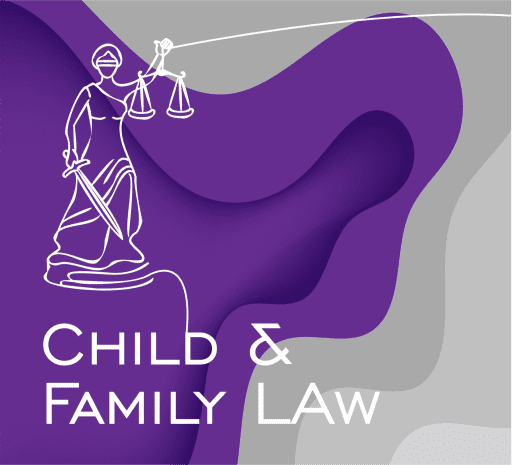A Framework for Peace, Not Conflict
Separation is never easy. It comes with a whirlwind of emotion, and when children are involved, the stakes feel even higher. But amidst the uncertainty and the change, there is room for clarity. There is room for compassion. And most importantly, there is room for a plan.
In 2025, many separating or divorcing parents across England are looking for ways to ensure that their children continue to feel loved, secure, and supported. They seek to protect their children from conflict and instability. That’s where the parenting plan comes in. It’s not just a document, it’s a commitment. A commitment between two people who may no longer be partners, but are, and always will be, parents.
What Is a Parenting Plan?
A parenting plan is a voluntary written agreement between parents, setting out how they intend to share the parenting of their children after separation. It doesn’t require court involvement, and in most cases, it avoids it. It is a living, breathing document that reflects the unique needs of your family and the best interests of your child. And in England, it’s supported by guidance from organisations like CAFCASS and the Ministry of Justice.
In the eyes of the law, a parenting plan isn’t automatically legally binding. But don’t mistake that for weakness. When done thoughtfully, it can be the cornerstone of stability, providing predictability and mutual understanding that can protect children from the emotional fallout of conflict.
Can the Court Override a Parenting Plan?
While a parenting plan shows strong commitment and cooperation between parents, the court always retains the power to intervene where necessary. Under Section 1 of the Children Act 1989, the welfare of the child is the court’s paramount consideration. If there is a safeguarding concern, or if one parent is not adhering to the agreement in a way that harms the child’s well-being, the court may override the plan and issue a Child Arrangements Order in the child’s best interests.
Why Parenting Plans Matter in 2025
In today’s England, the family landscape is evolving. We’re seeing more co-parenting, more diverse family structures, and more parents seeking to resolve disputes amicably. Parenting plans are part of that evolution. They’re tools of peace, not weapons of power. They signal a willingness to cooperate, to prioritise children, and to set aside differences in the interest of doing what’s right.
With rising court backlogs and an increasing emphasis on Alternative Dispute Resolution (ADR), the family law system is encouraging parents to take ownership of their post-separation arrangements. Parenting plans are at the heart of this shift. They empower families to take the lead, with guidance when needed, but without the shadow of litigation.
Key Elements of a Strong Parenting Plan
A parenting plan is not one-size-fits-all. It should reflect your child’s age, personality, health, school routine, and relationships with both parents. But the best plans share some common elements:
- Living Arrangements and Schedules
Where will the child live? How will time be shared during the week, on weekends, during holidays, and on special occasions like birthdays or Christmas? - Decision-Making
Who will make decisions about education, medical care, religion, and extracurricular activities? - Communication
How will the child communicate with each parent when they are apart? How will parents communicate with each other about the child? - Flexibility and Review
How will the plan adapt as the child grows and circumstances change? - Dispute Resolution
What happens if parents disagree? Will mediation be used before going to court?
Respecting Cultural and Religious Backgrounds
England is home to diverse families, and parenting plans should reflect this. Consider how religious holidays, dietary practices, or cultural traditions may affect parenting schedules or child-rearing decisions. Including these considerations in your plan shows respect for each parent’s background and helps the child maintain their cultural identity.
Making the Plan Work: Realistic, Practical, and Child-Focused
It’s one thing to draft a parenting plan. It’s another to make it work in the real world. That means being realistic. It means acknowledging that life happens, schedules change, kids get sick, people move, jobs shift. A good plan isn’t rigid; it’s adaptable.
But more than anything, a good parenting plan is child-focused. It asks, again and again: What does my child need? Not what do I want. Not what’s fair to me. But what is best for them.
That kind of thinking takes maturity. It takes grace. And it takes a deep belief that even after separation, you and your co-parent are still a team when it comes to raising your children.
Hearing the Child’s Voice
Children, especially those who are older or more emotionally aware, often benefit from being involved in decisions that affect their lives. Under UK law, the Welfare Checklist (Section 1(3) of the Children Act 1989) requires courts to consider “the ascertainable wishes and feelings of the child concerned (considered in the light of their age and understanding).” While a parenting plan is private, it’s wise to mirror this principle by taking the child’s views into account.
This might include:
- Discussing arrangements informally with the child.
- Involving a family therapist or child specialist to support that process.
- Ensuring the child does not feel they have to “choose” between parents.
Is It Legally Binding? And Should It Be?
As of 2025, parenting plans in England are not automatically enforceable in court. But they can be converted into a legally binding Child Arrangements Order if both parents agree and apply through the family court. For many families, this extra layer of legal protection isn’t necessary, especially when trust and communication remain strong.
However, if there is a history of conflict or there are concerns about follow-through, legal enforceability may offer reassurance. In such cases, one of our solicitors can assist in drafting a consent order that reflects the parenting plan and seek court approval.
What If One Parent Refuses to Cooperate?
Sometimes, one parent may refuse to participate in the creation of a parenting plan, or agree to a plan and later disregard it. In these cases, the next step is often mediation, which is strongly encouraged under the Pre-Action Protocol for Family Law. You will need to attend a MIAM (Mediation Information and Assessment Meeting) before court proceedings can begin.
If mediation fails, an application can be made to the family court for a Child Arrangements Order, which sets out legally binding responsibilities.
Parenting Plan vs. Child Arrangements Order
Think of it this way: a parenting plan is the handshake, the agreement made in good faith. A Child Arrangements Order is the contract, enforceable by law.
For most amicable separations, the parenting plan is enough. But when court support is needed, converting it into an order is a wise step. It offers structure without eroding the spirit of cooperation.
Parenting Plan Mistakes to Avoid
Even well-intentioned parents can fall into traps when drafting a plan. Here are some common pitfalls:
- Being too vague: Clarity prevents conflict. Don’t leave room for misinterpretation.
- Ignoring the child’s voice: Children (especially older ones) have preferences. Listen to them.
- Failing to revisit the plan: Circumstances change. Your plan should too.
- Overlooking school transitions or travel logistics: Make sure it works on paper and in practice.
Tools, Templates, and Resources
You don’t have to start from scratch. Organisations like CAFCASS offer free parenting plan templates. These guides prompt you to consider issues you may not have thought about, and they help structure the conversation with your co-parent.
You can also seek support by getting legal advice. At Aristone Solicitors, we work with families to draft child-centred, practical plans that lay a foundation for the future. We believe in resolving family matters with empathy, intelligence, and above all, integrity.
Co-Parenting Apps to Help You Stay Organised
In 2025, many families are turning to technology to support communication and coordination. Co-parenting apps can reduce misunderstandings, store shared documents, and help parents stick to routines. Some popular UK-compatible options include:
- OurFamilyWizard – used and recognised by UK courts for tracking communication and expenses.
- Cozi – great for shared calendars and family reminders.
- 2Houses – offers parenting schedules, messaging, and financial tracking.
Using these tools can reduce conflict and make the plan more functional day-to-day.
Finances and Shared Parenting Responsibilities
While a parenting plan focuses on the child’s care, it’s wise to address day-to-day financial contributions for expenses like school uniforms, extracurricular activities, or travel. Although child maintenance is typically handled separately (via the Child Maintenance Service or private agreement), you can include provisions for shared costs in the plan. This helps prevent disputes and ensures clarity.
A New Chapter: Hope Beyond the Separation
It would be disingenuous to say that separation is painless. It isn’t. But pain does not mean failure. And it does not mean your children must suffer. In fact, handled with care, your separation can be an act of growth – one where love is redefined, not withdrawn.
A parenting plan is a blueprint for that growth. It’s not a legal trick or bureaucratic formality. It’s a symbol. A promise. A statement that no matter what has changed between you, your commitment to your child remains.
So to every parent facing this road ahead: you are not alone. You are capable. And with the right tools, the right support, and the right mindset, you can write a new chapter, one where your children thrive, not in spite of your separation, but because of how you handled it.
Let’s do this with clarity. With compassion. With courage.
Let’s plan for peace.




